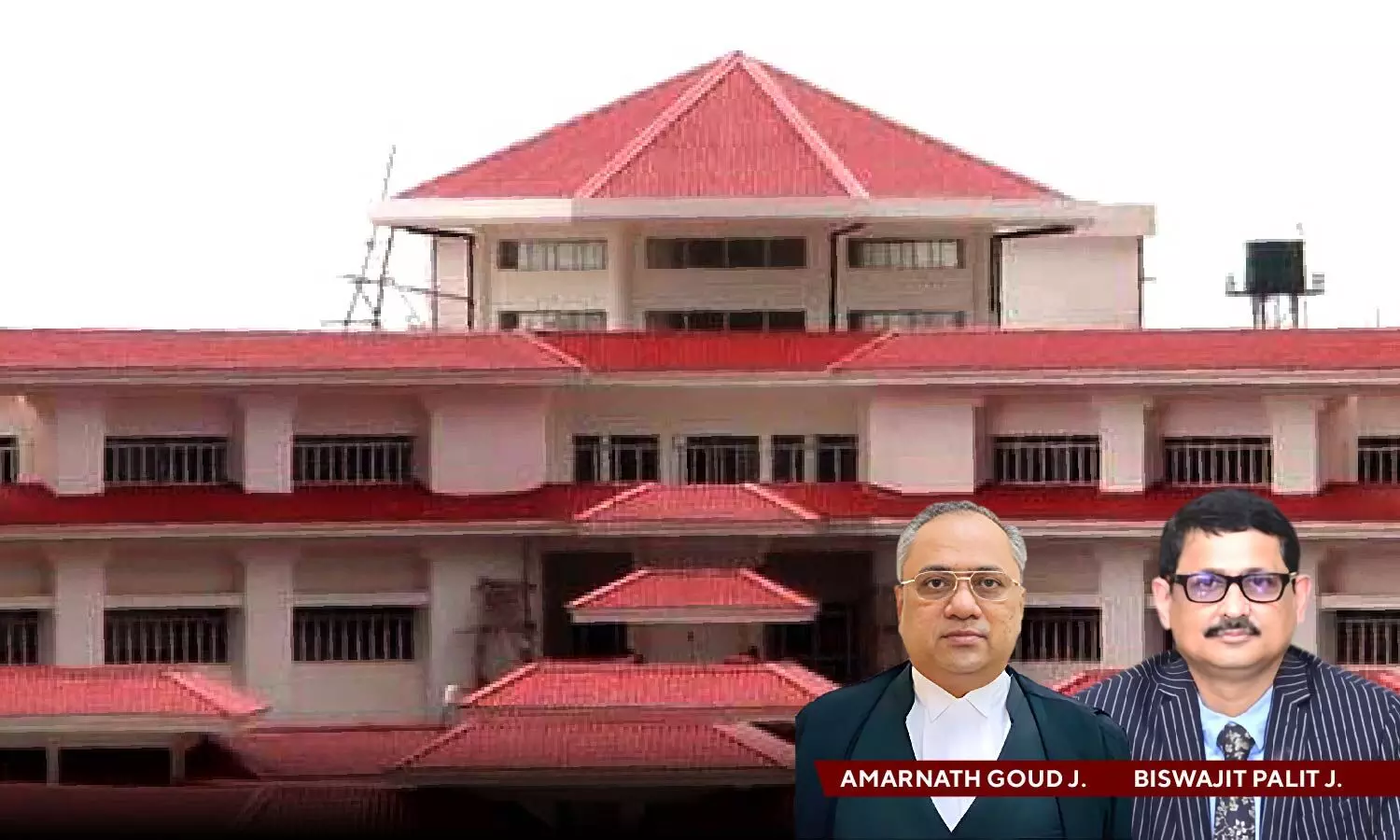
Conduct Is Unbecoming Of Judicial Officer & Doubtful: Tripura HC Upholds Dismissal Of A Judicial Officer
 |
|The Tripura High Court upheld dismissal of a judicial officer from service.
The Court upheld the decision, and observed that his conduct was doubtful and unbecoming of a judicial officer.
The Bench comprising Justice T. Amarnath Goud and Justice Biswajit Palit observed,... “the conduct of the petitioner is unbecoming of Judicial Officer and doubtful” and the same is ordered. With the above modification, the impugned notification issued for discharging the petitioner from service is affirmed and upheld”.
Advocate C. S. Sinha appeared for the Petitioners and Advocate General S. S. Dey with Senior Advocate B. N. Majumder appeared for the Respondent.
The petitioner, appointed as a Grade-III Judicial Officer, faced disciplinary action after allegedly influencing his transfer. He received a show cause notice and was accused of seeking transfer through improper means. The District and Sessions Judge reduced his house rent reimbursement, and the Full Court recommended his discharge, leading to a government notification terminating his service. The Petitioner filed a petition before the High Court challenging the termination.
The Court noted that the petitioner was accused of attempting to influence his transfer by allegedly seeking a recommendation from the Minister of State for Social Justice & Empowerment, Government of Tripura. Despite the petitioner's denial, a letter from the Minister recommending the transfer was received, leading to suspicion. The petitioner's request for transfer due to family reasons was rejected earlier by the Full Court. The Court found the petitioner's conduct suspicious, concluding that he failed to prove his innocence.
The Bench noted that the petitioner faced allegations of overstaying leave and being unavailable during visits by the Learned District and Sessions Judge, Khowai. Evidence showed the petitioner was absent without sanctioned leave, overstaying for two days beyond approved leave. Despite the petitioner's claims of illness and lack of communication about the Judge's visit, inconsistencies arose. The Bench Clerk admitted to not informing the petitioner about the visit, leading to his immediate transfer. The District Judge denied receiving any communication regarding the petitioner's illness. The High Court noted that the petitioner made false statements, raising doubts about his excuses for absence from duty.
Furthermore, the Bench observed that the petitioner, being a probationer at the time of discharge, was subject to Rule 15(6) of the Judicial Service Rules, 2003, which allows for discharge without inquiry if deemed unsuitable for service. As the petitioner's probationary status was not contested, no inquiry was deemed necessary. The discharge order was administrative, not punitive, as per Rule 15(4), indicating suitability for the post. Furthermore, the petitioner, as a judicial officer, is not covered under Article 311 of the Constitution of India, which pertains to permanent employees. Regarding House Rent Allowance (HRA), the petitioner was entitled to 24% of basic pay, amounting to around Rs.6,480, but was receiving Rs.23,500, which is not permissible.
Additionally, the Court noted that the petitioner argued that the observation in the Full Court's decision, which stated that the petitioner's demeanour was unbecoming of a judicial officer and his integrity doubtful, was affecting his future employment opportunities.
Despite this, the Court observed that the petitioner's conduct was unbecoming of a judicial officer and doubtful. However, considering the petitioner's career prospects, the Court decided to amend the observation to state that the conduct of the petitioner was unbecoming of a judicial officer and doubtful.
With this modification, the Court upheld the decision to discharge the petitioner from service.
Accordingly, the Court dismissed the Petition.
Cause Title: Sri Koushik Karmakar v State of Tripura